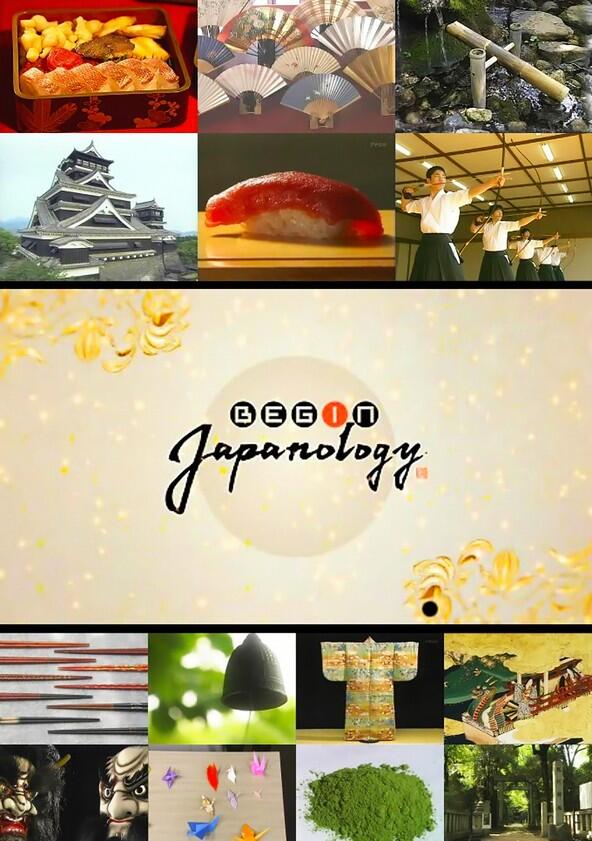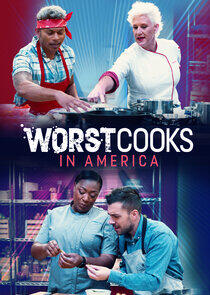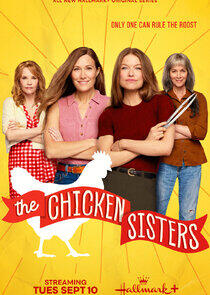Begin Japanology - Season 3 / Year 2009

Season 3 / Year 2009

Episodes

Nishijin-ori

Kyoto Lacquerware

Sake

Katsura Rikyu

Bonsai

The Four Seasons

Hina Dolls

Nagasaki

Five-Story Pagodas

Cherry Blossoms

Chopsticks

Aizome

Bunraku

Kiriko Cut Glass

Traditional Folk Houses

Tea Ceremony

Soba
Affordable, casual and tasty, soba noodles are one of the most popular foods in Japan. Whether as a light lunch, as part of an evening's carousing, or at special once-a-year ceremonies, these nourishing noodles made from buckwheat flour are enjoyed throughout the country. The custom of eating soba caught on more than three centuries ago as an affordable street food among the ordinary people of Japan. It was a specialty of the shogun's capital, Edo (modern-day Tokyo), where it dovetailed perfectly with the busy lifestyle of the townspeople. There are various types of soba noodle, and they're prepared in many different ways - cold, with a simple dip; hot in a rich, savory soup; or served with a variety of tasty toppings, such as tempura, egg, deep-fried tofu, or slices of duck meat. These preparations are enjoyed year-round. Generations of soba craftsmen have developed techniques to draw out the flavor from the plain-tasting buckwheat grain. There are still many restaurants that make their noodles in the traditional way. In recent years, there's also been a boom for home-made noodles. Soba-making classes attract plenty of aspiring soba-makers, often middle-aged or older men aiming to take their love of soba to the next level. Discover how these simple noodles developed from a humble street food and are now prized by local gourmets.

Origami

Imari Porcelain

Folding Fan

Kaiseki Cuisine

The Sounds of Japan

Masks

Satoyama

Kendo

The Fragrances of Japan

Spinning Tops

Rock and Stone

Ink Brushes
Since ancient times, people in Japan have devoted themselves to the traditional art of calligraphy, shodo. Writing characters with ink on paper, they create works that express the inherent beauty of the Japanese written language. In shodo, brushes are used for applying the ink to the paper. The expressiveness of the characters derives from variations in the speed and force that the calligrapher uses to move the brush. The brushes themselves are simple objects, made from bundles of animal hair or other materials bundled together and fixed to a shaft. The actual materials used will depend on the style of calligraphy that is desired. Around 80 percent of Japanese ink brushes are produced in Kumano, Hiroshima Prefecture. There are numerous workshops in this town where skilled craftsmen still make the brushes by hand in the traditional way. On this edition of BEGIN Japanology, we examine the history, development and contemporary applications of ink brushes, introducing these simple implements that have been so essential to the development of Japanese writing and painting.

Tsukemono

Dogs

Ramen

Rice

Shinto Shrine

Festivals
In Japan, festivals are known as matsuri. Many matsuri are colorful and boisterous occasions. Matsuri are typically associated with a Shinto shrine. Local people gather to pray and give thanks to the enshrined deity for agricultural bounty, health, safety and security. Over the years, these gatherings have evolved into elaborate events that frequently feature dancing, masks and magnificent floats. Entire local communities may be drawn into the preparations for festivals, which have nurtured some of the most refined arts and crafts in Japan. Even the sophisticated Noh theatre has festival origins, and, in some communities, apprentices will spend years learning a craft such as woodcarving specifically for its application in an annual matsuri. Some festivals involve breathtaking demonstrations of courage and skill, and all contribute to stronger family and community bonds. On this edition of BEGIN Japanology, we present some of the most famous festivals in Japan and consider the links to community and culture.

Shinkansen

Gagaku

Marriage

Shogi

Nabe Cuisine

Sword
Recently Updated Shows

Diners, Drive-Ins and Dives
With roadside diners, vintage drive-ins and out-of-the-way "dives" enjoying a resurgence of hipness among foodies, host Guy Fieri travels across America in search of some of the best "greasy spoon" eateries. The restaurants that Guy visits are usually well-known among locals and other people in the region. While at each location, Fieri talks to the staff as well as the customers to get their thoughts on the food. Many episodes feature eateries that are connected by a common thread, such as burgers or comfort foods but its all here on Diners, Drive-Ins and Dives.

Worst Cooks in America
Chef Anne Burrell is back for a seventh season of trying to turn some of America's worst cooks into kitchen stars. This time, however, the recruits are seven celebrities who can showcase their talents on TV and in movies, but not no so much in the kitchen. Burrell competes against Worst Cooks in America newcomer Rachael Ray to see which chef can lead one contestant to make the most impressive culinary transformation. Actors Dean Cain, Ellen Cleghorne, Jaleel White and Barry Williams join reality stars Jenni "JWoww" Farley, Chris Soules and Kendra Wilkinson in boot camp. The winning star gets $50,000 for charity and bragging rights for his or her mentor. Not all of the celebrities will make the cut, however; after an opening potluck dinner each mentor selects three recruits to be on her team, leaving one celebrity to be sent home before the competition really begins. Burrell is looking to extend her record to 5-2, while Ray looks to get the win in her first season.

My Lottery Dream Home
David Bromstad takes recent lottery winners on over-the-top house hunts for their new dream homes. Whether they win hundreds of thousands or hundreds of millions, lucky lottery winners everywhere are jumping headfirst into the real estate market. Will they spend all their winnings on an extravagant mansion or settle for a humble sound investment? Find out what happens when average Americans set out to find My Lottery Dream Home.

Robin Hood
Robin Hood is described as a sweeping, romantic adventure, a modern take of the classic tale that brings historical authenticity, psychological depth, and a heightened focus on the relationship between Rob and Marian.
In the series, following the Norman invasion of England, Rob – a Saxon forester's son – and Marian, the daughter of a Norman lord – fall in love and work together to fight for justice and freedom. As Rob rises as the leader of a band of rebel outlaws, Marian infiltrates the power at court, as both work together to thwart royal corruption and bring peace to the land.

The Chicken Sisters
The Chicken Sisters is a family drama dipped in southern charm and served up with a saucy side of romance. The setting is the fictional town of Merinac, where a generations-old rift between dueling fried chicken restaurants – Mimi's and Frannie's – has left the founders' families fractured and the locals taking sides. When popular cooking competition show Kitchen Clash comes to town, this could be the recipe for ending this feud once and for all. But things are fixing to heat up both inside and outside of the kitchen as the reality show spotlight causes sparks to fly as secrets are spilled and feathers get ruffled.